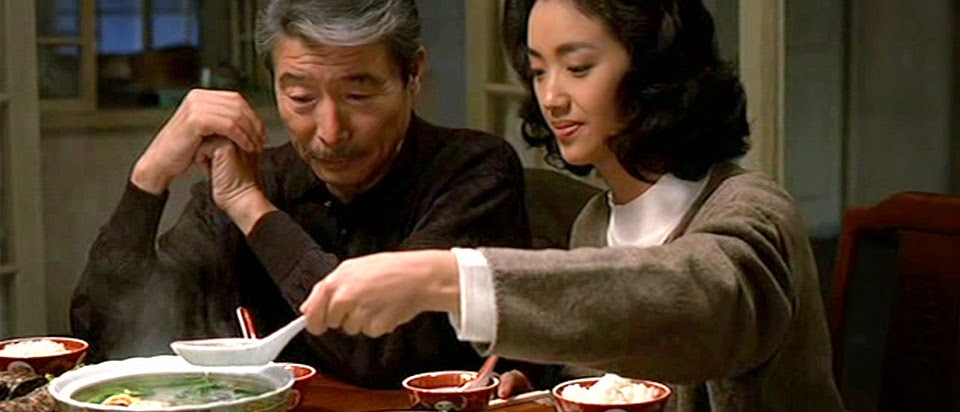Daniel Auteuil stars as the titular well-digger, toiling away in the picturesque hills outside a small French village with his friend and partner (Kad Merad). The titular daughter (Astrid Berges-Frisbey) has been away becoming refined in Paris, and has returned to her widowed father and the rest of her many sisters to help take care of the family. She is as selfless and caring as she is beautiful, and her father's partner would like to marry her. Her father wouldn't mind because it'd keep her close.
Alas, she's already met the son of a shopkeeper, a stunt pilot (Nicolas Duvauchelle) who wins her heart by carrying her across a river and giving her a ride on his motorbike. They're of different classes, but that doesn't matter: sparks fly and soon she's pregnant.
In a last minute misunderstanding, the pilot leaves to fight in WWI, entrusting his mother (Sabine Azema) to deliver a note explaining everything to the well-digger's daughter. Instead, his mother burns the note, and now our beautiful heroine is stuck. Her father's friend also leaves to fight in the war, but not before she confesses her condition to him. He's a nice guy -- he understands.
Dad understands, too, but something must be done, so he hikes his whole family up to see the potential future in-laws only to be turned away. The pilot's father (Jean-Pierre Darroussin) is more understanding than the mother, but still, no dice.
Anything beyond that gets into spoiler territory so let's talk about what a joy the movie is. The lead, Astrid Berges-Frisbey, is a beauty of course, and so is the other star of the film, the French country-side. Watching the film I was reminded of a couple of French classics, JEAN DE FLORETTE and MANON DES SOURCES, and reading up on the film after watching it, it's no wonder -- all of these stories sprang from the same source, French novelist and filmmaker Marcel Pagnol.
So Romancefest 2015 comes to an end. This year I saw more contemporary films than usual, but also more countries' worth of films than usual, so it was more of an international Romancefest than previous years. This is the 6th annual Romancefest, so that means I've now seen and written about 164 romantic movies -- I failed one year, so I'm short a few. Still, that's a lot. Romancefest might be wheezing to a finish. I don't know if I can keep it up, or if I want to. But, we'll see.








